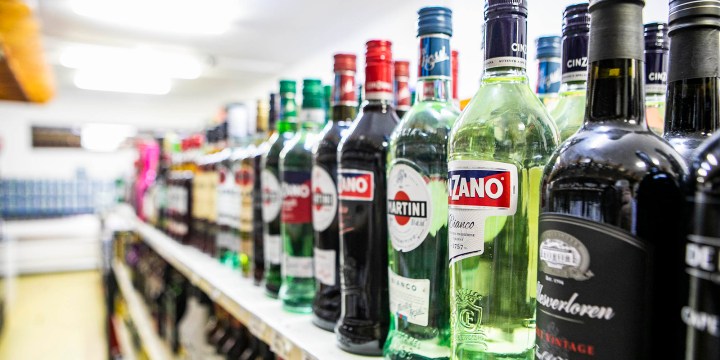Maverick Citizen Op-Ed
Activists call on African health leaders to prioritise high-impact alcohol policy measures

The products and the practices of the alcohol industry are wreaking havoc in our communities. They fuel violence and road traffic deaths, abuse and neglect of children; they drive diseases such as cancer, mental ill-health and heart disease, as well as HIV/AIDS; they cause massive loss of human potential and economic productivity.
Tungamirai Zimonte is a board member at Movendi International and founder at Youth against Alcoholism and Drug Dependency (YADD), Zimbabwe. William Ntakuka is Kenya regional representative to the UN, Movendi International.
“Health is wealth.” It’s an African proverb that shows how important good health and wellbeing are to the people in our continent. And our communities are longing for change and improvements in the area of health, healthcare and disease prevention.
That is why we are participating this week in a highly important but somewhat overlooked meeting of the World Health Organization in the African region. The 47 member countries of the World Health Regional Office for Africa gather digitally for the annual regional committee meeting. Health leaders from across our region discuss an ambitious agenda ranging from Covid-19 response to digital health.
There are many challenges and threats to health and development that we and our communities are facing: the coronavirus pandemic being the obvious one, the HIV/AIDS epidemic being the permanent one, and the epidemic of chronic diseases, such as cancer, heart disease and mental ill-health, being the still overlooked one. In the face of these challenges, we are hoping for African health leaders to take bold steps and wise decisions in the spirit of the “health is wealth” adage.
But in reviewing the meeting’s agenda and documents we started feeling troubled: alcohol harm and corresponding alcohol policy solutions are totally absent from all the health topics our leaders are discussing – even though these are significant health issues where alcohol harm plays a substantial role.
According to the WHO our region bears the heaviest alcohol burden in the world. While the majority of adults in Africa live free from alcohol, more than 60% of African alcohol users engage in heavy episodic consumption.
The products and the practices of the alcohol industry are wreaking havoc in our communities. They fuel violence and road traffic deaths, abuse and neglect of children; they drive diseases such as cancer, mental ill-health and heart disease, as well as HIV/AIDS; they cause massive loss of human potential and economic productivity. In South Africa, for instance, the combined tangible and intangible costs of alcohol harm to the economy are between 10% and 12% of growth domestic product. According to a study published in The Lancet in 2009, health and social costs of alcohol alone amounted to about R9-billion ($1.2-billion) per year. That was double the amount the government received in alcohol excise tax revenue.
During the ongoing pandemic, the lethal interaction between alcohol and Covid-19 came into sharp focus: alcohol environments became superspreader events, alcohol harm pushes our health systems and emergency services to the brink of capacity, and alcohol use weakens the immune system.
At the same time, a majority of African countries still do NOT even have a written national alcohol policy.
That is why we are calling on African health leaders to finally make alcohol policy solutions the priority they clearly should be. Some African countries – such as Kenya with its groundbreaking alcohol law, or South Africa with its temporary alcohol sales bans during Covid-19 – prove that evidence-based alcohol policy promotes health and development.
In fact, alcohol policy solutions are catalysts for other health goals, including to end the HIV/AIDS epidemic, or to strengthen health systems overall.
Therefore, we call for investments in alcohol policy solutions. High-impact alcohol policy measures, such as raising taxes, banning advertising and reducing alcohol availability, generate $9 for every $1 invested. Already in 2010, the WHO showed that raising taxes on alcohol to 40% of the retail price could have an even bigger impact than a 50% increase in tobacco taxation. For 12 low-income countries that would mean a drop in alcohol use of more than 10%, while tax revenues would more than triple to a level amounting to 38% of total health spending in those countries.
Evidence-based alcohol policy helps African countries to reduce harm, promote health and afford better healthcare.
It’s time for a decade of action to prevent and reduce alcohol harm in Africa – the rewards will be better health and bigger wealth. DM/MC
"Information pertaining to Covid-19, vaccines, how to control the spread of the virus and potential treatments is ever-changing. Under the South African Disaster Management Act Regulation 11(5)(c) it is prohibited to publish information through any medium with the intention to deceive people on government measures to address COVID-19. We are therefore disabling the comment section on this article in order to protect both the commenting member and ourselves from potential liability. Should you have additional information that you think we should know, please email [email protected]"


















 Become an Insider
Become an Insider